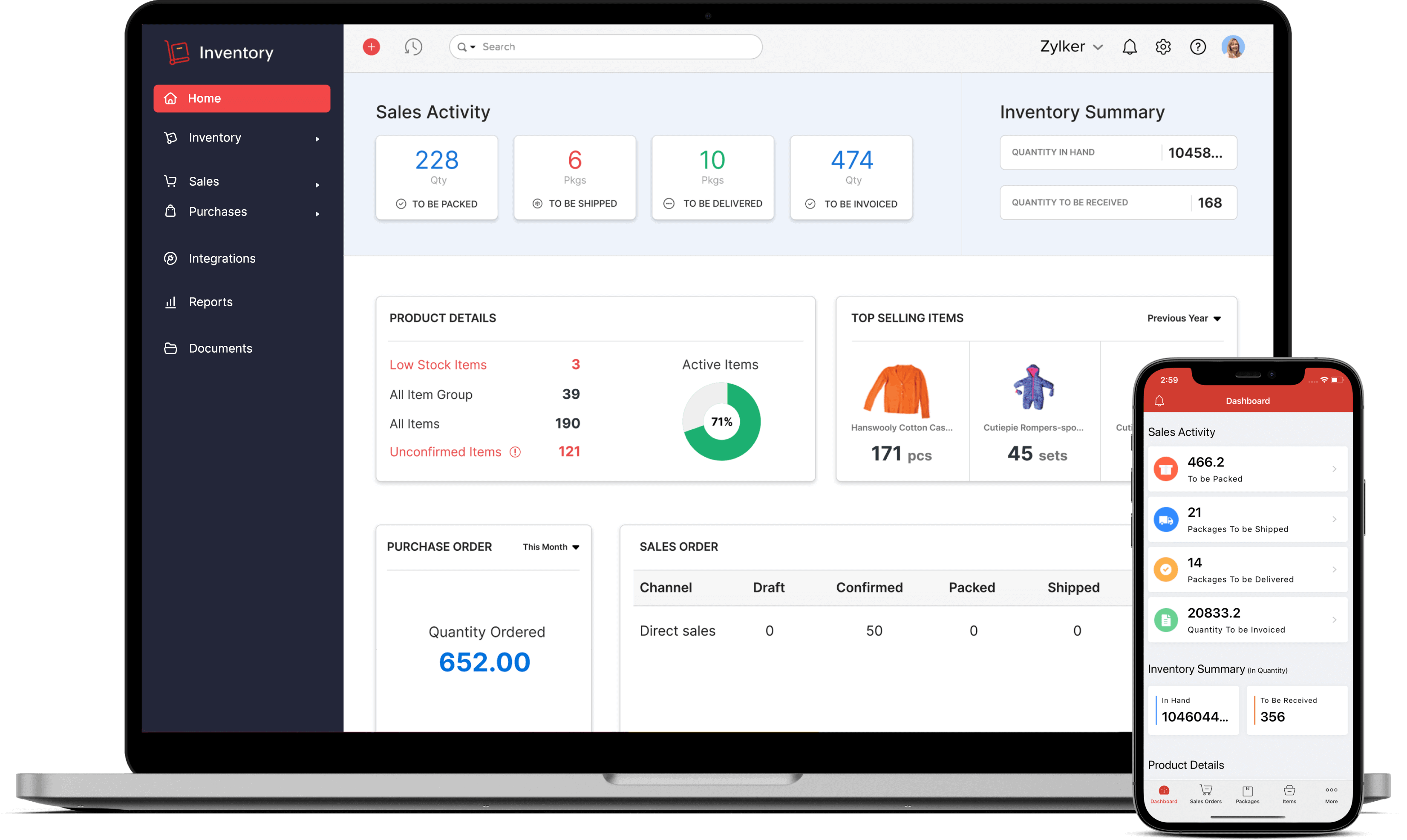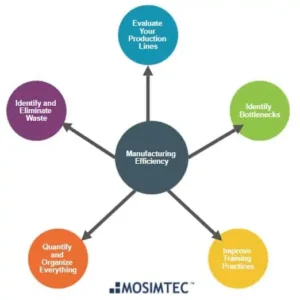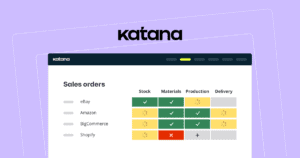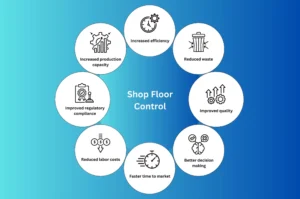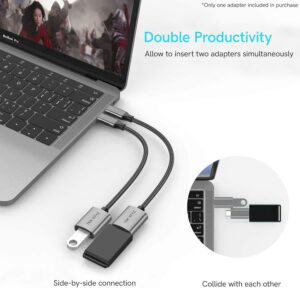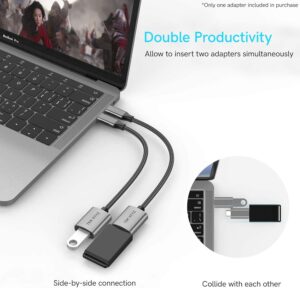Zoho Inventory vs. TradeGecko: Best for Inventory Management?
Selecting the right inventory management software can transform your business efficiency, especially when choosing between well-regarded options like Zoho Inventory and TradeGecko. In this comparison, we’ll dive into both platforms’ unique features, strengths, and which solution may better fit your business needs based on industry, scale, and operational priorities.
Zoho Inventory and TradeGecko are powerful in their own right but cater to slightly different needs. This guide will help you decide which software aligns best with your inventory management goals.
Key Features Overview
Zoho Inventory
- Multi-channel integration with e-commerce platforms and marketplaces
- Real-time inventory tracking and low-stock alerts
- Automated workflows, including order fulfillment and invoicing
- Detailed analytics and reporting capabilities
- Integrates with Zoho’s comprehensive suite, including CRM, Books, and more
TradeGecko
- Advanced sales and purchase order management
- Strong B2B and wholesale functionalities
- Highly customizable order workflows
- Robust analytics with custom reporting
- Syncs with accounting platforms like QuickBooks and Xero
User Interface and Ease of Use
Zoho Inventory: Known for its user-friendly interface, Zoho Inventory is straightforward, making it easy for small and mid-sized businesses to set up and run their operations. The dashboard is organized, with intuitive navigation and customizable options to suit various business needs.
TradeGecko: With a more feature-dense interface, TradeGecko may take longer to learn but offers advanced customizability that can be beneficial for businesses handling complex inventories or large-scale wholesale orders. TradeGecko’s interface is best suited for users with moderate to advanced technical skills.
Multi-Channel Integration and Sales Channels
Zoho Inventory: Ideal for businesses selling across various channels, Zoho Inventory integrates seamlessly with major e-commerce platforms, such as Amazon, Shopify, eBay, and Etsy. This feature enables businesses to manage inventory across platforms from one central system, reducing the risk of overselling and out-of-stock items.
TradeGecko: TradeGecko also supports multi-channel selling but is particularly strong in B2B and wholesale environments, allowing you to set up unique pricing tiers, discounts, and personalized offers for different customers. This makes it a top choice for businesses with significant wholesale operations.
Inventory and Order Management
Zoho Inventory: Zoho Inventory focuses on real-time tracking and order management automation, keeping stock levels accurate and optimizing fulfillment processes. With Zoho’s automated low-stock alerts, businesses can avoid stockouts and manage replenishment efficiently.
TradeGecko: With advanced order processing capabilities, TradeGecko is particularly effective for businesses with high-volume orders. It supports purchase orders, customizable workflows, and automated order tracking. Businesses dealing with bulk orders and distribution may find TradeGecko’s tools especially beneficial.
Reporting and Analytics
Zoho Inventory: Zoho Inventory offers essential reporting tools for tracking inventory levels, sales trends, and order statuses. The insights provided are suitable for small to mid-sized businesses needing straightforward reports to guide inventory decisions.
TradeGecko: Known for its robust reporting capabilities, TradeGecko provides advanced analytics, including custom reports on inventory valuation, sales performance, and product profitability. Businesses focused on data-driven decisions will appreciate TradeGecko’s depth in reporting.
Customizability and Scalability
Zoho Inventory: Zoho Inventory is scalable and works well for growing businesses, especially those that can leverage other Zoho apps for a comprehensive suite. It’s also customizable to an extent, but not to the same level as TradeGecko, making it ideal for small businesses and those looking for simplicity in inventory management.
TradeGecko: Built with scalability in mind, TradeGecko is ideal for businesses that anticipate growth in both inventory complexity and customer base. With its customization options and support for multiple currencies, pricing tiers, and advanced inventory features, it’s better suited for larger businesses or those with more complex inventory needs.
Pricing and Value for Money
Zoho Inventory: Zoho Inventory is known for its affordable pricing, especially for small to mid-sized businesses. Its pricing is competitive, with various plans to suit different business sizes and budgets. The ability to integrate with Zoho’s ecosystem adds more value for businesses using multiple Zoho products.
TradeGecko: While TradeGecko may come at a higher price point, its features are designed for businesses that can fully leverage its advanced functionalities. TradeGecko’s pricing aligns with businesses requiring a strong B2B focus, wholesale support, and customizable order processing.
Customer Support and Resources
Zoho Inventory: Zoho Inventory provides accessible customer support through email, live chat, and an extensive knowledge base, which includes tutorials, guides, and webinars. It’s a helpful option for businesses needing accessible and responsive support.
TradeGecko: Known for its dedicated support, TradeGecko offers personalized assistance, especially for customers on higher-tier plans. TradeGecko also has an extensive knowledge base and training resources, supporting larger businesses with more complex needs.
Conclusion: Which is Right for Your Business?
If you are a small to mid-sized business looking for an intuitive, affordable solution with essential features and multi-channel integration, Zoho Inventory is a great choice. Its real-time tracking and simplicity are well-suited to businesses needing effective yet easy-to-manage inventory software.
On the other hand, if your business is larger, deals with high-volume or wholesale orders, and needs advanced customization, TradeGecko might be the better fit. Its strong focus on B2B functionalities, robust analytics, and scalability make it ideal for businesses planning for significant growth and complexity in their inventory operations.
FAQs
- Which software is better for small businesses?
Zoho Inventory is generally a better fit for small to mid-sized businesses due to its affordability and ease of use. - Does TradeGecko offer multi-channel support?
Yes, TradeGecko supports multi-channel sales but is particularly strong in B2B and wholesale settings. - Can Zoho Inventory integrate with accounting platforms?
Yes, Zoho Inventory integrates with Zoho Books and other accounting software for seamless financial management. - Which is better for wholesale operations, Zoho Inventory or TradeGecko?
TradeGecko is generally better for wholesale operations, offering features like custom pricing tiers and advanced order management. - Is there a free trial for both platforms?
Both Zoho Inventory and TradeGecko offer free trials, allowing businesses to test the features before committing.
Top Tools for Inventory Management Comparison
- Zoho Inventory: Affordable multi-channel solution with real-time tracking.
- TradeGecko: Advanced features for B2B and wholesale operations.
- Ordoro: Multi-channel inventory and order management with shipping support.
- Cin7: Suitable for complex inventory needs, with ERP capabilities.
- Katana Cloud Inventory: Ideal for manufacturers needing production tracking.
Keywords: inventory management, Zoho Inventory, TradeGecko, multi-channel integration, real-time tracking, B2B features, order processing, pricing comparison

